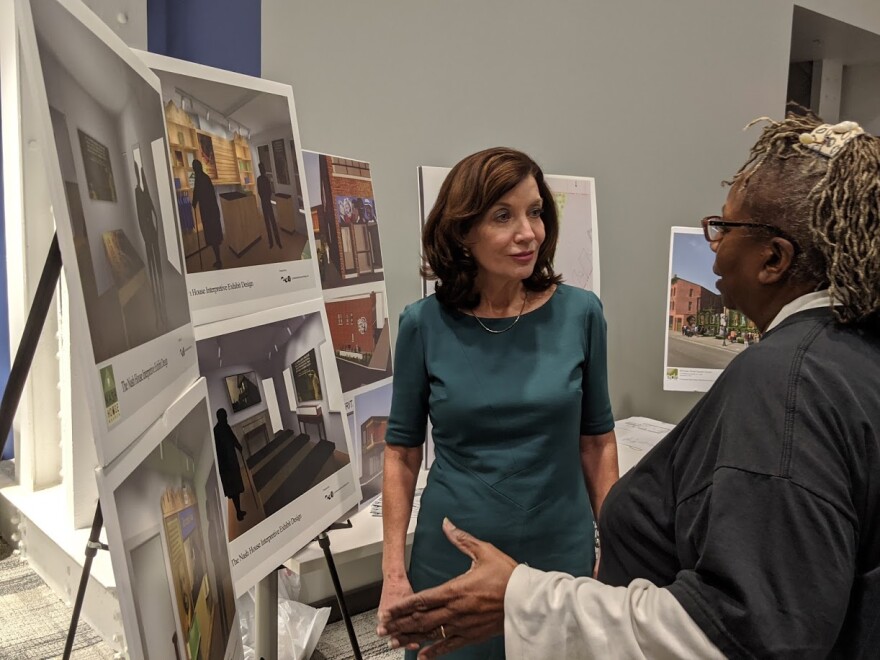State officials are showing off a vast plan for economic development on Buffalo's East Side called the East Side Avenues effort.
The program is starting off with $65 million state dollars and around $8 million private dollars from companies, law firms and foundations. The plan is to build on what is already there, on business strips which have held on in bad years and use landmarks like the Central Terminal and Broadway Market as cores for development. The avenues are Michigan, Jefferson, Fillmore and Bailey.
The plan is interlinked, with cash for renovating and stabilizing business buildings and state programs to make sure minority and women-owned businesses can do the work and get the cash.
"Growing organically, building on strengths works," said Howard Zemsky, a longtime local developer and chairman of Empire State Development Corporation. "You take key assets like the Broadway Market, MLK Park, the Central Terminal and employment centers. Think about the employment centers that are near there. Combine assets like that with employment centers. You can create really successful development around those kinds of anchors."

That's what Zemsky has done building the Larkinville neighborhood commercially. Several of those at the meeting in the Northland Workforce Training Center said this package of programs looks good and has money.
Annette Watts is a longtime owner of a tailor shop on Bailey and is interested in repairing the building she owns to house her store.
"It needs a roof from the winter, from the wind storms and everything. That's it," said Watts. "Providing we do all the owner work done, siding, windows."
The first round of applications for those repair dollars has already closed. Sydney Brown, economic development director for Citizens Alliance, said the building repair program looks promising.
"There's a number of businesses that have already applied for the funding," Brown said. "We haven't gone through the selection committee actually approving the applications, but what's nice about this program, it's not reimbursable. It's a 15/85% match, where the business owner only needs to come up with 15%, rather than pay for all of the renovations and construction costs associated and wait to get reimbursed."





